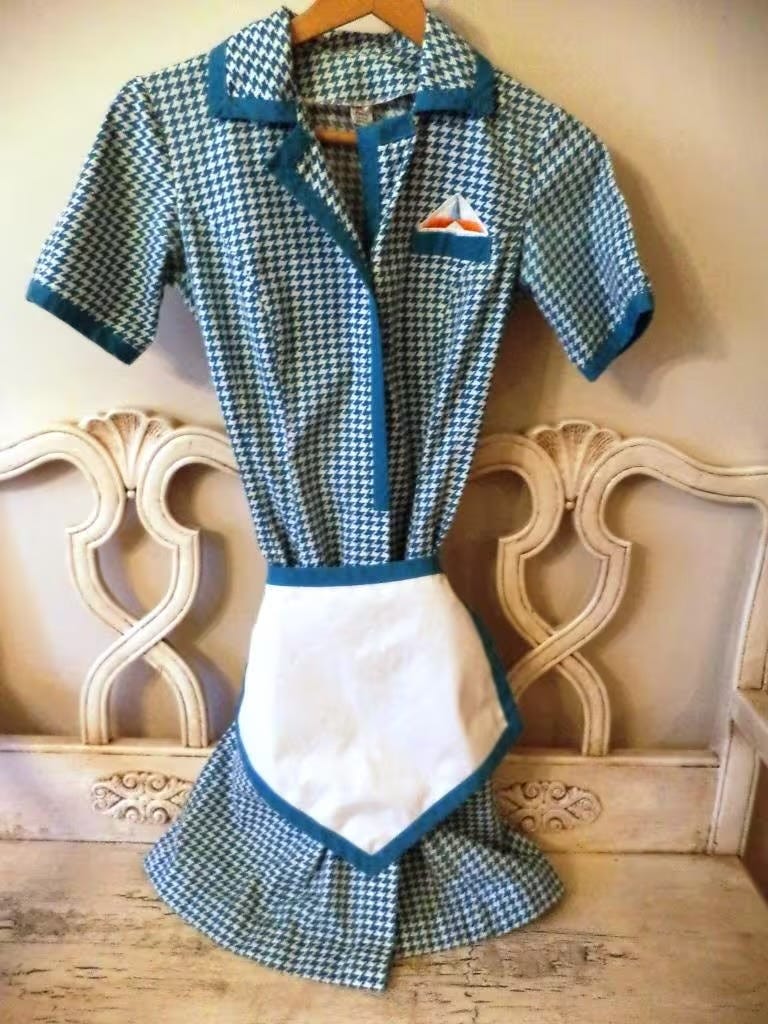By: Suzanne Muchin
Jennifer Siebel Newsom’s 2011 Sundance documentary Miss Representation missed its calling as the Barbie of that season. A lot more pink on set and fewer data points as B-roll, and it’s basically the same movie. Those featured in the documentary ask the same question as the Barbies: Why are so few women in positions of power and influence? In the 2011 documentary, Marion Wright Edelman gave us the same answer that Greta ran with, “You can’t be what you can’t see.”
Growing up in the Chicago suburbs in the 70s, I saw something I wanted to be. She was powerful. She was influential. She had the full attention of every man seated before her. She had a purpose, a paycheck, and moved through the world with an “I’ve got this” confidence that left me in awe. She was the red-haired waitress at the Howard Johnson’s near our house. For my 6th birthday, I asked my parents to buy me my own turquoise and orange uniform so I could wear it when they had friends over for dinner.
After that career path declaration at age six, I wasn’t asked further questions about what I wanted to be. Maybe it was a girl thing. However, a few skills emerged in early adulthood. I could spin a good yarn. I could listen to people pitch their business ideas and then hit the golden buzzer when I heard the one with potential. People liked to choose me as the cult-lite leader of any group. And like Hamilton before me, I could write my way out of most situations.
What these skills did not do was prepare me for a future with job titles that would make people nod their heads in recognition of my choices (as in, “Oh yes, my daughter-in-law is also a social impact brand strategist” or “My husband has a similar position at IS139”). But I will tell you one thing they did equip me for. They made me believe that I could try many, random, careers because I had just enough acumen to say, “Why not?” I figured that short of being a neurosurgeon or rocket scientist, I might as well put on my big girl Howard Johnson’s uniform, show up at the counter, and give it a spin.
And that’s just what I have done. Over the last 26 years, I’ve been everything from a Spanish teacher in the South Bronx to an on-air radio host for WGN. I’ve founded six companies, rescued two puppies, sat on corporate and non-profit boards, and am an MBA Professor. I’m also a Mom, a wife, and a Jewfluencer. Which one of those experiences has made me feel the most like an imposter?
I have a secret to share as I answer that question. You can thank Jenny for asking me; you will want to pass it on.
Every time I did something for the first time, I didn’t just feel like an imposter, I WAS an imposter. At least for the first few months. Sometimes longer. But that’s not the secret. The SECRET is that this is exactly how it is supposed to be.
Turns out, you have no choice but to be an imposter when you do something hard for the first time. You shouldn’t know how to do it well, or sometimes, at all. And it will take a while to cross over to where you believe you are not deceiving anyone. This is true for EVERYONE. Unless you are Beyonce. But for the rest of us, becoming great at anything that matters requires a set of conditions that only exist if we first do the thing poorly, and in public.
I know that sounds terrifying. And trust me, I’ve had many moments of stepping into classrooms, recording booths, board rooms, and birthing suites at hospitals and thinking to myself: at what point will they figure out that I have absolutely NO creds suggesting that giving me this level of authority/responsibility is a good idea for any of the parties involved?
But over time, after doing many things badly before I did them a little less badly, I learned that this is actually how it works—doing it as an imposter opens the door to feedback– from others, and ourselves. In response, we adjust and improve. When we let ourselves experience those first-time-doing-something-in-public feelings of fear, shame, and (this is an academic term) yuck, and then notice that the sky doesn’t fall, we build muscle memory that makes us calmer and more confident the next time we do it. And so on.

Here is my definition of imposter syndrome. Imposter syndrome is the persistent, unrealistic, fear-inducing, fucking ridiculous belief that you are supposed to magically eliminate all variables for failure before trying anything new in the presence of others.
So next time that feeling creeps in, try this HoJo (that’s what we insiders call the place) waitress self-talk: I reject the mindset of “fake it ‘til you make it.” Instead, I will pride myself on actually BEING an imposter. I will get out there and do this thing to the best of my ability, today. There is no need to pretend that I arrived here already knowing how to do it well. That is f’in ridiculous.
Authored with love, and zero experience as a writer on Substack, your proud imposter,
Suzanne
This post was originally published on Can I Ask You A Personal Question?

